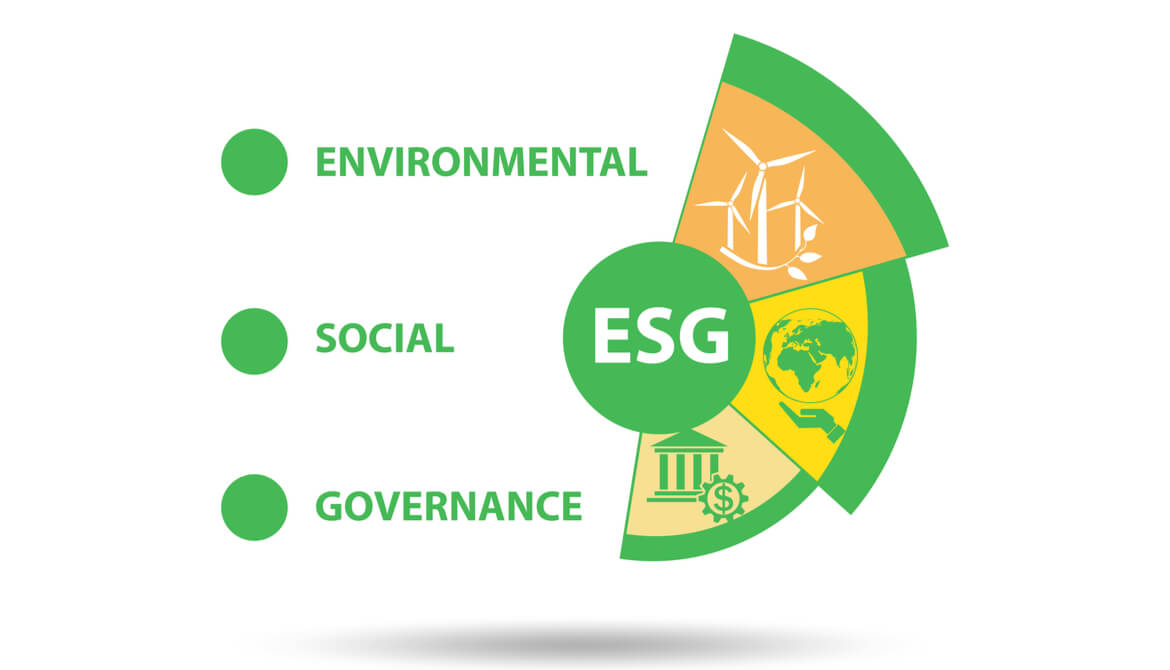5 minutes
Environmental, social and organizational governance help determine a company's sustainability, societal impact and future financial performance.
At the beginning of 2020, climate change and climate action seemed likely to dominate corporate board agendas for the rest of the year. Then the pandemic hit, quickly followed by a global social movement against systemic racism and injustice. Boards are now challenged to adopt an “ESG-mindset" on everything from the health and safety of employees and customers, to aligning strategy to environmental sustainability, to ensuring their governance practices keep pace with social movements.
ESG refers to the three central factors in measuring the sustainability and societal impact of a business—environmental, social and corporate governance. These criteria help to better determine the future financial performance of companies.
Where are boards headed in this regard? How should boards handle their organizations’ ESG efforts to support future success?
“We are certainly in unprecedented times in both leading and managing companies,” said Pamela Passman, a director of Kinaxis Inc. and former CEO of CREATe.org, vice chair of The Ethisphere Institute and corporate VP/deputy general counsel/global corporate and regulatory affairs for Microsoft. “How this pandemic will play out and how long it will frame our reality is unknown."
Passman spoke on a keynote panel session organized by Dottie Schindlinger, executive director of The Diligent Institute. “What You (and Your Board) Need to Know about the Future of ESG,” was the closing panel of the first day of Diligent Corporation’s online 2020 Modern Governance Summit, held in September.
“It’s hard to think business teams will have a plan for ESG over the short, medium and long term. But that work has to continue,” she added. “The expectation [of companies today is that they need] … to use their market power as well as their voice” to effect positive change.
“For many, the dislocation in the economy will get worse in the coming months,” Passman said. “How they handle layoffs etc., ... these are foundational. Boards should be getting briefed in how management is taking care of these special actions.”
During the session, Helle Bank Jorgensen, CEO and founder, Competent Boards, said she is observing that there are leaders and followers in the world of ESG—and that’s OK.
“This is not a sprint,” she explained. “I think this is about changing the mindset, changing the expectations, changing incentives—having the insight you need to make those informed decisions.”
The pandemic has shown boards that “we’re part of something greater and we have to care about others and not just about ourselves,” Jorgensen added. “Both the shareholder and the stakeholder are expecting businesses to play a bigger role in addressing societal challenges.”
Douglass Chia, president of Soundboard Governance, LLC, and a fellow with the Rutgers Center for Corporate Law and Governance, said the pandemic has been a major test of how boards manage or react to adverse times—and how they are doing with ESG.
“I’ve been pretty impressed,” he said, “that most companies and boards have placed the focus on the well-being of their employees.” Corporations are “not behaving like charities, but you can see evidence that they are trying to help employees to the extent that they can—also the customers, making sure they keep providing services that they need.”
Companies in the healthcare sector are realizing they have a special responsibility, Chia underscored. “Competition will be good” for the development of coronavirus treatments and a vaccine. Companies in this sector also understand this development need to be done in the right way.
They know they’re probably not going to make much profit off this, Chia said. People will think they “should give vaccine away for free. Price gouging will not be tolerated.”
ESG can be a great support to creating trust with stakeholders, these experts said.
According to Passman, “In the worst of times, trust and transparency are vital; they’re essential. ESG really provides a framework to advance a company’s trustworthiness with stakeholders. Trust is now the make-or-break difference for brands. Boards need to make sure that leaders play an important role” in building and maintaining trust.
“Most companies are going to have to go through more cost-reduction initiatives,” she explained. “You have to think about how it’s going to impact your local communities. Just closing one office or store can have a big impact. Companies need to be transparent about the impact. Boards really need to be aware.
“You can’t overcommunicate,” she emphasized. “All customer interactions are key, especially related to the protection of personal information. If something is not working, own it. Take responsibility.”
How can boards stay current on environmental, social and governance issues?
Jorgensen suggested looking at directors’ skills matrices and ensuring they are given the opportunity to get ESG competencies. Also, have the nominating committee look for ESG skills every time it is looking for new board members.
Importantly, though, board members should not get mired in the operational details of ESG, just oversee it.
“It’s important to really give space to management to deal with the situation now,” Jorgensen said. The duty of care comes into play here. “If you don’t show care right now, you’re in for deep trouble.” Under the duty of care directors should be asking questions of senior leadership so they know what an organization is doing.
She also suggested that boards need to set the tone for ESG. They should rearticulate how they care and how that relates. They need to create a statement of purpose. “Put what management will address into the business plan and strategies,” she suggested. “Allocate resources to it.
“Once we have these ESG initiatives, we also need to ensure that it’s built into the board of directors,” she added. This might take the form of a committee to provide regular oversight of ESG priorities. Everyone in the board room needs to have an understanding of these issues.
Top boards also ensure that the senior leaders demonstrate their buy-in to the board’s vision for ESG by building ESG results into executives’ incentives and the leadership culture, Jorgensen said.
Chia said that to effectively facilitate the ESG discussion might mean that boards need to meet more often, even weekly, to get regular updates. “Do that in an organized fashion,” he advised.
Lisa Hochgraf is senior editor with CUES.
Apply It to Your Boardroom
- What is your board’s vision for the environmental and social impact of your credit union?
- What features of your current governance practice support your ESG vision?
- What more could you be doing with ESG that would benefit your credit union and build trust with your stakeholders?






